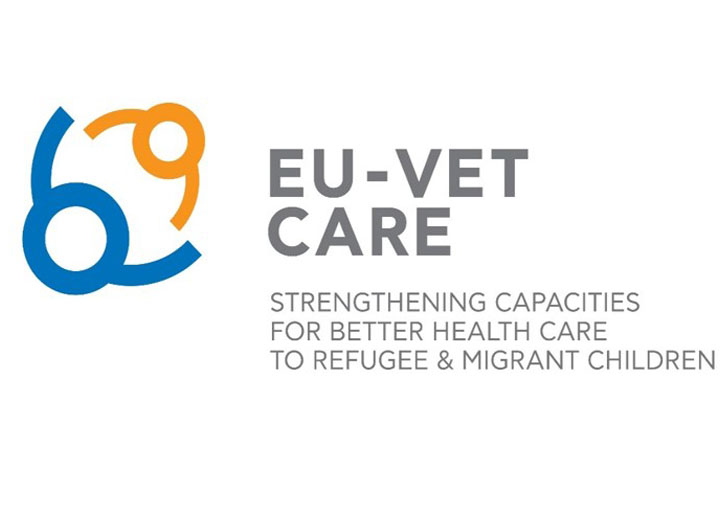Polibienestar creates an educational program to train social and health personnel who work with refugee and migrant children
- Scientific Culture and Innovation Unit
- May 25th, 2021

The Social Welfare Policy Research Institute (Polibenestar) of the University of Valencia participates in the European project EU-VETCARE by developing educational material to facilitate the provision of adequate social and health care to refugee and migrant children. The result of the project led by Carolina Moreno Castro, professor at the University of Valencia, is an online training course for these professionals that will be taught in June and the call is open on the project platform: https://www.euvetcare.eu/.
The main objective of the EU-VETCARE project, with a duration of 36 months, co-financed by the ERASMUS+ program of the European Union and ending this August, is “to improve the capacities for better health care for children refugees and migrants”, with which to provide better health care to refugee / migrant children and unaccompanied minors. Among the actions that have been developed, educational materials have been designed for the training of health professionals or social and health personnel, responsible for providing health care to this vulnerable group.
The project consortium is made up of organisations from 5 European countries. In Spain, Polibienestar is the entity responsible for developing this project. Other participating organizations are: the Ethno-Medical Centre (program coordinator, Germany), the Technological University of Cyprus, Zadag Ltd (Italy), the Prolepsis Institute and Faros (Greece).
EU-VETCARE research and work, with focus group discussions, showed that health professionals face many problems and shortcomings in the provision of care to migrant and refugee children, and many of these professionals show symptoms of occupational exhaustion.
The lack of medical and vaccination history, lack of epidemiological data in the country of origin, and bureaucratic processes appear to be the most important issues, health professionals have reported. The insufficient number of cultural translators and mediators, along with the lack of intercultural skills, are also among the main barriers denounced by health professionals.
Previous research also found that health professionals have a special need to continue training in issues related to legal frameworks, working protocols with children, management of job exhaustion, interdisciplinary collaboration and intercultural skills. In addition, the need to acquire skills for effective communication with children and the recognition of psychological problems of trauma and addiction (especially alcohol and substance use) was noted.
Since 2015, Spain and other European countries have experienced a large influx of refugee / migrant flows due to conflicts in the Middle East and poverty in many other parts of the world. Migrant / refugee children and especially unaccompanied minors face many risks during their trip to Europe, which makes them particularly vulnerable. In addition, poor living conditions in the host country and lack of access to health services and education, place an additional burden on their mental and physical health. Public health emergencies such as the COVID-19 pandemic make them even more vulnerable, due to insufficient access to safe drinking water and basic hygiene conditions.
Polibienestar
The Research Institute for Social Welfare Policies, Polibienestar, is a public research institute belonging to the University of Valencia (Spain). It is an international reference institute, specialising in research, innovation and social technology, technical advice and training in the field of social policies. For 20 years it has been carrying out both basic and applied interdisciplinary research on economic, social, political and technical sustainability of welfare systems, advising the Administration and companies on the design, planning and implementation of resources and social welfare and sustainability policies.
UE-VETCARE website: http://www.euvetcare.eu
UE –VETCARE programme: https://www.polibienestar.org/potfolio/eu-vet-care/
UE-VETCARE Facebook page: http://facebook.com/euvetcare
















